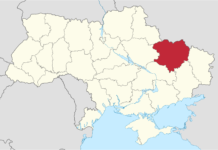In diplomatic escalation, China issued a stern warning to the Philippines, cautioning President Ferdinand Marcos Jr. against “playing with fire” over the Taiwan issue. This sharp rebuke from Beijing came after President Marcos extended his congratulations to Taiwan’s President-elect, Lai Ching-te, on his recent election victory.
China’s Foreign Ministry spokesperson, Mao Ning, expressed strong dissatisfaction and resolute opposition to President Marcos’ remarks. The congratulatory message was seen by Beijing as a serious violation of the “One China” principle, a long-standing policy that asserts Taiwan as an integral part of China’s territory. Mao Ning urged President Marcos to gain a better understanding of the Taiwan issue and to refrain from actions or statements that could be construed as support for Taiwanese independence.
In response, the Philippines’ Department of Foreign Affairs issued a statement reaffirming its adherence to the “One China” policy. The statement clarified that President Marcos’ message was intended to recognize mutual interests between the Philippines and Taiwan, including the presence of 200,000 overseas Filipino workers on the island. The message was also meant to acknowledge Taiwan’s successful democratic process.
This incident highlights the sensitive nature of Taiwan’s political status and the complexities of diplomatic relations in the region. The Philippines, while maintaining official diplomatic ties with China, also engages in unofficial relations with Taiwan, primarily driven by economic and cultural exchanges.
The strong reaction from Beijing to Manila’s overtures towards Taiwan is indicative of the increasing geopolitical tensions surrounding the island, especially at a time when several countries, including the United States and Japan, are calling for a peaceful resolution of tensions in the Taiwan Strait.
The situation remains delicate, as China continues to assert its claims over Taiwan and warns against any international recognition of Taiwanese sovereignty. At the same time, countries like the Philippines navigate a complex diplomatic landscape, balancing their relationships with both China and Taiwan.










